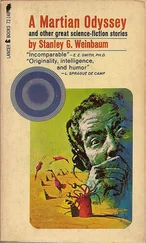
J. Wachowski
In Plain View
© 2010
Dear Reader,
Thank you for purchasing this Carina Press launch title. During our journey these past months to acquire manuscripts, develop relationships with authors and build the Carina Press catalog, we’ve been working to fulfill the mission “Where no great story goes untold.”
If you’d asked me what I’d be doing a year ago, I never would have conceived I’d be working with the brilliant team behind Harlequin’s digital program to bring you a new and exciting digital-first imprint. I have long been a fan of Harlequin books, authors and staff and that’s why I’m so pleased to be sharing these first Carina Press launch titles with you.
At Carina Press, we’re committed to bringing readers great voices and great stories, and we hope you’ll find these books as compelling as we do. In this first month, you’ll find a broad range of genres that showcase our promise to Carina Press fans to publish a diversity of content. In the coming months, we’ll add additional genres and continue to bring you a wide range of stories we believe will keep you coming back for more.
We love to hear from readers, and you can e-mail us your thoughts, comments and questions to generalinquiries@carinapress.com. You can also interact with Carina Press staff and authors on our blog, Twitter stream and Facebook fan page.
Happy reading!
~Angela James
Executive Editor, Carina Press
www.carinapress.com
www.twitter.com/carinapress
www.facebook.com/carinapress

A story is a dream until it has an audience. Many people helped me realize this dream as my first readers and steadfast supporters.
L. Longford, M. Watson, S. Phillips, K. Hannah, C. Linz and the Creativefest Braintrust;
J. Clark, H. Hughes, S. Lariz and the Arrowhead Book Group;
Melissa Johnson, Angela James and the avant-garde entrepreneurs at Carina Press;
Ron & Lynne Wachowski, Lana & Karin, Laura & Pete, Andy & Alisa, Sandy, Peggy and Sandy Eakins.
Miriam Norton and Grams.
It is a great joy to thank you all in a book.
For Rob,
Ryan & Sophie
Sine qua non
AUDIO (VOICE-OVER): “A mystery solved is a fine remedy for death. It suggests there is sense, or justice, in the messy unraveling of mortality. It presumes to clean up ragged edges, explain all events and sell it back: case closed. Such a nice feeling-while it lasts.”
10:00:00 a.m. Sign-on
Bad days are the raw material of life. Good days are earned. Apparently, I was undeserving as well as unemployed.
“Sorry, Rich. I’m solo.”
“Not anymore. Not if you want this job,” Richard Gatt shot back at me. Picture your typical midwestern fireplug of a guy-shiny head, white button-down oxford and a blunt, booming voice.
I could feel my interview smile warping into a grimace. Must have made for a fabulous ensemble, with my current suicide-blonde-in-leather-pants look. My fingertips worried the seam across my knee. My lucky pants.
News flash: the pants weren’t working either.
“Come on, Richard. Why tie up resources? I’m a one-woman show. It’s part of my charm.” I attempted the smile that once got me out of a cardboard box and into a bullet-proof truck in Somalia. Works pretty well on bartenders, too.
Gatt ducked his chin into his collar. I caught a tinge of blush on his unprotected forehead. He pulled a handful of sugar packets out of his desk drawer. “We can help each other out here, O’Hara. But if you want this job, you gotta train my kid.”
“Kid?” The sudden déjà vu resulted in serious stomach acid.
News of Gatt’s job opening was whispered in my ear by a friend at the tippy-top of the network-TV food chain who owed me a favor. WWST was a small sister station camped in western suburban Chicago Land. Not exactly top ten, but Gatt was the only program director in the state looking to hire a producer for a position that offered both salary and benefits. People in jobs that sweet sat tight until ratings off-ed them or they actually died.
It wasn’t my dream job. But I’d stopped feeling picky two months ago. Too long between gigs. Every freelancer knows the feeling that creeps over you as the jobs spread thinner, the fear that what you’ve got inside-all your dreams and abilities-no longer match what’s happening outside. If you aren’t working, you’re a fraud.
My stomach issued another warning shot.
Gatt pretended not to hear it. He ripped the tops off three sugar packets and dumped them all into his cup at once. “We want stories with a local slant. Warm-fuzzy midwest shit. Local, but with national appeal.”
“Sure,” I said. Local but national. Oxymorons are Television Marketing 101.
“How much do you know about this area, O’Hara? They told me you’re local.”
“I grew up in the city. But my parents brought us out this way occasionally. My dad used to race dirt bikes when I was a kid. We’d always end up picnicking at that war museum out here where you can climb on tanks while you eat your tuna sandwich… You know the place I’m talking about?”
“Cantigny.” Gatt nodded.
It was one of many grand summer homes dotting the farm county, built by Chicago’s landed gentry of a century ago. Cantingy’s owner survived France and the First World War. His house was a monument created to display the souvenir tanks- cum -lawn ornaments he’d brought home.
My grandfather survived that same war. He claimed all he’d been allowed to bring back was a bad case of foot rot.
“Nice spot.”
We did the mutual yeah.
My eyes kept straying to the window behind him. The view from Gatt’s office was the visual definition of horizontal. Farmland at the horizon blended into a field of grassy weeds that ended at the black-topped parking lot.
War. Tanks. Foot rot and flatland. Unfortunately, local story associations weren’t looking very warm and fuzzy.
Gatt bent his mouth into something like a smile. “Born and raised in the city myself, O’Hara, and I’ll tell ya, this ain’t Chicago. But it has its moments, you know? Small town. People know people. Sometimes, reminds me of the neighborhood.” He raised an eyebrow and opened his palm, the regional gesture for your turn.
“Grew up in Longwood.” The far south side neighborhood I hadn’t seen in years.
“Then you know what I’m talking about. Neighbors help each other out.”
Translation: the kid Gatt wanted me to train was a favor. Payback.
The best way to think of a Chicago neighborhood is like a clan designation. Clans are all about relationships and alliances. Favors are the currency most often traded. I might know somebody; I’ll make a call is Chicagoan for money in the bank. Who you can call is the last best measure of the good life, whether you need a driveway plowed, a ticket fixed or a special order birthday cake from a really good German bakery.
Out on the East Coast, it’s all about the pedigree. On the West Coast, it’s only about the paystub. Here on the Third Coast, it’s the clan pact.
From the look on Gatt’s face, the only way I was getting this job was if I agreed to train his kid.
Settling deeper into the chair, the faux leather protested with the kind of rude noises my pants would never dream of making. “First things first, Richard. Let’s hear what you’ve got.”
Читать дальше














